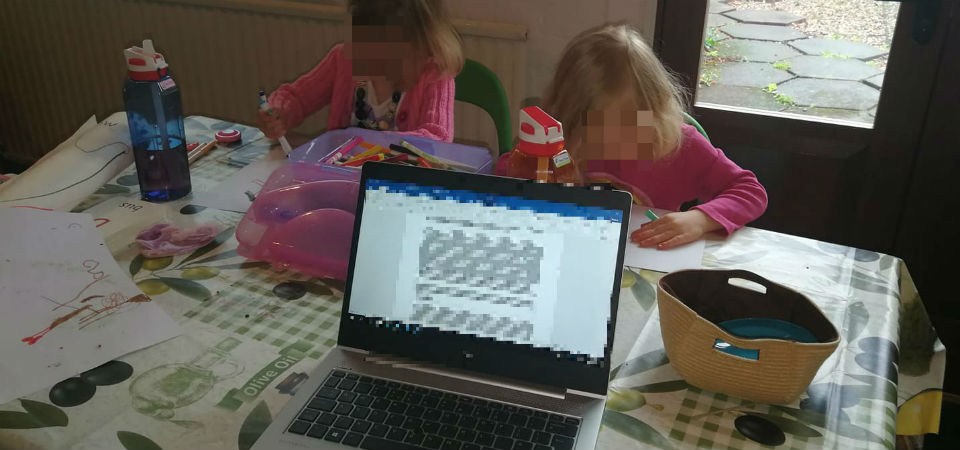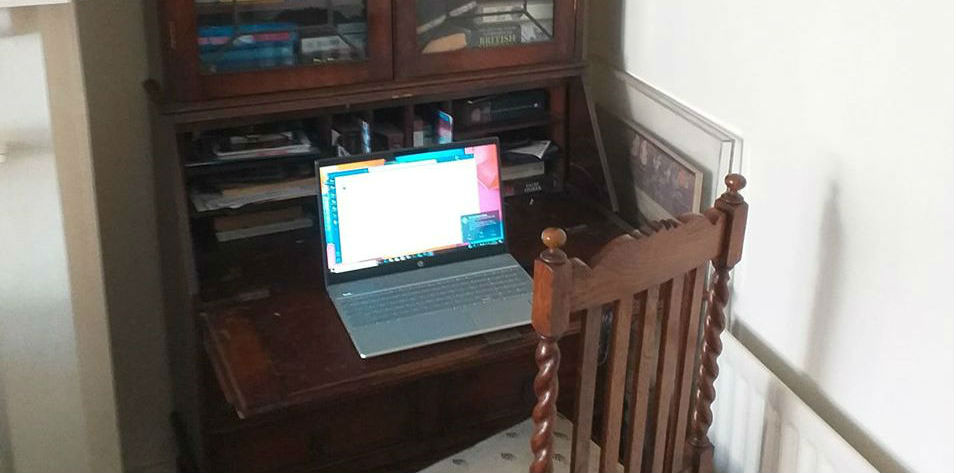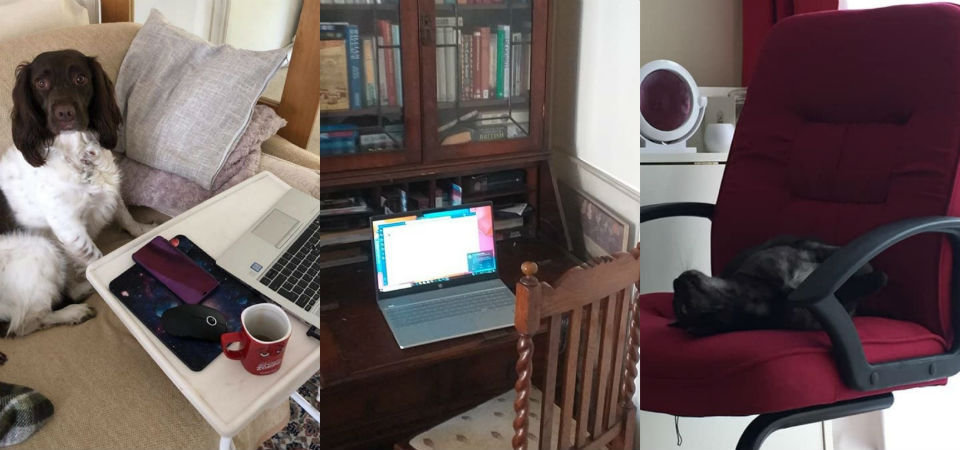Academics from Loughborough, Leicester, Coventry and Birkbeck Universities invited members of the public to join a specially created group and share thoughts, blogs, photos, videos, memes and other information about their work habits.
The team wanted to learn more about how people with different jobs and domestic responsibilities coped with home-working, as well as the impact on mental health, wellbeing and relationships, the physical challenges, and how these changed over time.
Main aims:
- Gain insight into the demands of homeworking during the pandemic
- Develop guidance to help people manage homeworking more effectively post Covid-19
- Explore the use of social media as a novel method for understanding remote-working
To date, more than 200 people have been posting to the group since its launch in March, with many posting regularly and documenting their changing experiences.
Researchers were met with a variety of responses – both positive and negative.
Some referred to the temporary impact on cognitive function – or brain fog, as described by one group member.
"I started out with brain fog. But looking back I'm wondering if that was extreme anxiety about delivering teaching online and feeling deskilled with minimal tech resources – with no practical or constructive responses to any expression of anxiety from [my] boss. I felt paralysed with fear to be honest.” – Facebook group post
Similarly, some others mentioned experiencing mental fuzziness and muddy headedness.
Loughborough’s Dr Cheryl Travers, who is leading the study, said: “With social media being used as a key communication tool during the pandemic, we felt that this was an exciting opportunity to harness in-the-moment experiences of those working at home.
“When a situation such as working from home is suddenly imposed, and without time for planning or guidance, it can impact on people’s mental, physical, social and cognitive wellbeing.
“It has been a very stressful time, and many people are having to balance competing demands relating to work, caring and home-schooling while being anxious about their own health and that of their family and job insecurity.
Professor Gail Kinman from Birkbeck University added: “By being able to understand the impact, this will help businesses adapt and better care for members of staff in the future – especially if working from home what is being termed the ‘new normal’.
“There needs to be guidance for employers and employees on how to work in a healthy and efficient way at home as well as how to comply with health and safety requirements.”
Other popular themes included struggling to find appropriate places to work.
Group members described working in different locations in their house, such as on the landing, on the bed with another mentioning blocking the fridge door in an attempt to find a suitable space.
Others were trying to work alongside other family members who also needed equipment and space.
 Image uploaded to Facebook by group member
Image uploaded to Facebook by group member
Some of the Facebook photos showed people working in cramped and improvised spaces, with scenes highlighting the difficult choices some people face when attempting to find space to work while still retaining the feel of home.
Dr Nicola Bateman, from the University of Leicester, said: “As people have come to terms with the upheaval of suddenly moving to working at home, they have crafted and improved their workspaces.
“This is limited by the needs of others at home and the support employers offer.”
Dr Karen Maher, of Coventry University, added: “Lockdown has been a period of competing priorities and nuanced experiences for those attempting to work from home… the metaphorical plate spinning for some, but isolation for others and the lack of relief for both.
“Those who were isolated couldn’t seek company and those who felt overwhelmed couldn’t access support in the way they usually would.”
Researchers also noticed a shift in people’s attitudes towards showing their homes to colleagues during video calls.
While, initially group members were concerned about being judged on their surroundings and appearances – such as increasingly greying hair and choice of clothes – as time went on, people began to warm to the informality and authenticity that working from home has created.
Unexpectedly, the group also evolved into a source of support, and members began offering sympathy and advice about successful working methods for other participants.
"The first week of lockdown I was really productive and thought I was going to get a lot done. But then I hit a wall and had five weeks when I just managed to keep on top of things. The simplest of tasks took hours. But last week I moved my working to another room, set specific targets for each day (smaller targets than I would otherwise set) and I seem to have become more productive again. Hopefully, the fog has lifted." – Facebook group post
Dr Travers said: “This seemed to happen naturally – people identified with other group members’ experiences and offered messages of validation and support.
“Through their experiences and working situations varied in reality, they had this one big thing in common – 'staying at home during a pandemic and attempting to work'.”
 Image uploaded to Facebook by group member
Image uploaded to Facebook by group member
The team plans to carry on collecting people’s experiences as they start going back to offices and other work settings, but many people are likely to continue working at home or take a more blended approach.
“The plan is to continue the study once the lockdown has eased and people begin to transition back into their original work environments,” said Dr Travers.
"We are interested to see how they manage the ‘blend’ of working within the two settings as this is expected in many organisations.
“Have they developed new skills?
“What are their expectations and values now that the lockdown is coming to an end. Have they changed and will good intentions last?
“Some initial observations suggest that some people may be reluctant to abandon the flexibility of working from home.
“That could mean they might expect their employers to continue to support their new homeworking habits in the future.”
Prof Kinman added: “Whatever the outcome, the future of work will never be the same again.
“The situation is still unpredictable, and so we will be monitoring the changing situation over time to explore how people continue to adapt.”
The initial findings have been published in the British Psychological Society’s Summer Bulletin.
A full report is due out later this year.
*The group created by the researchers is a closed group and cannot be accessed.
ENDS
